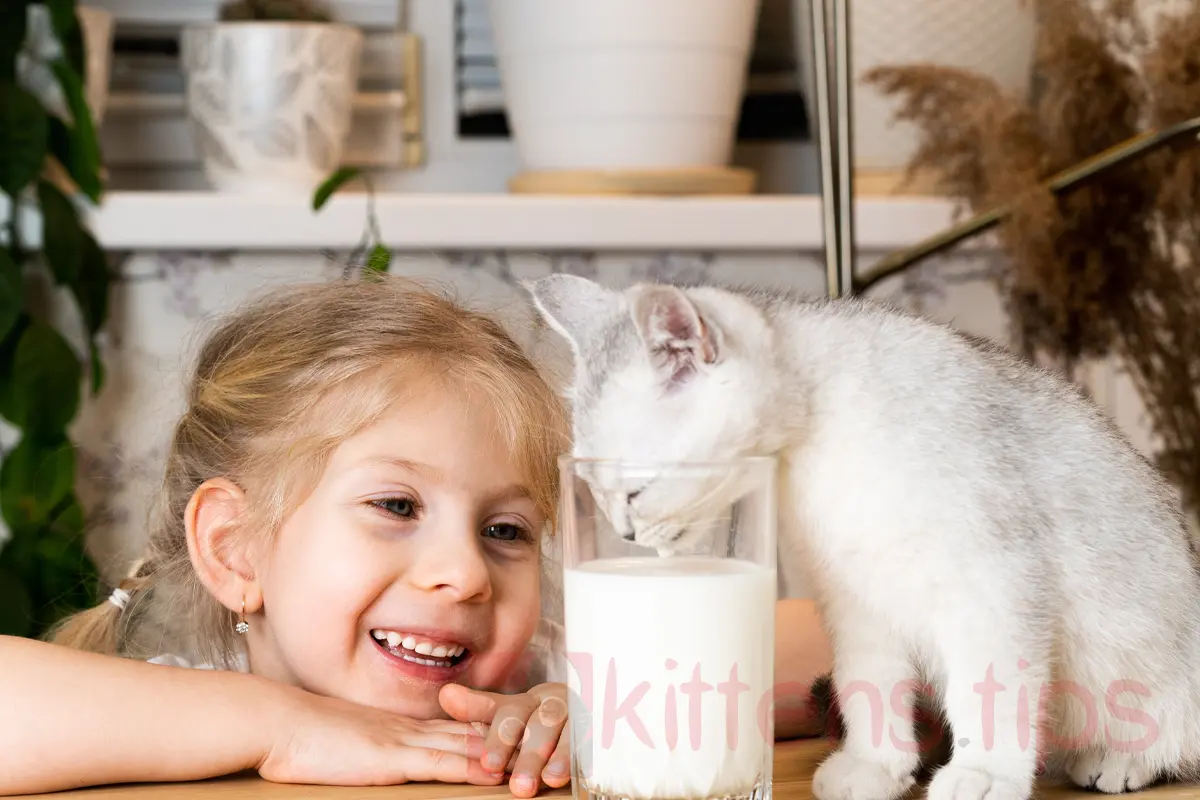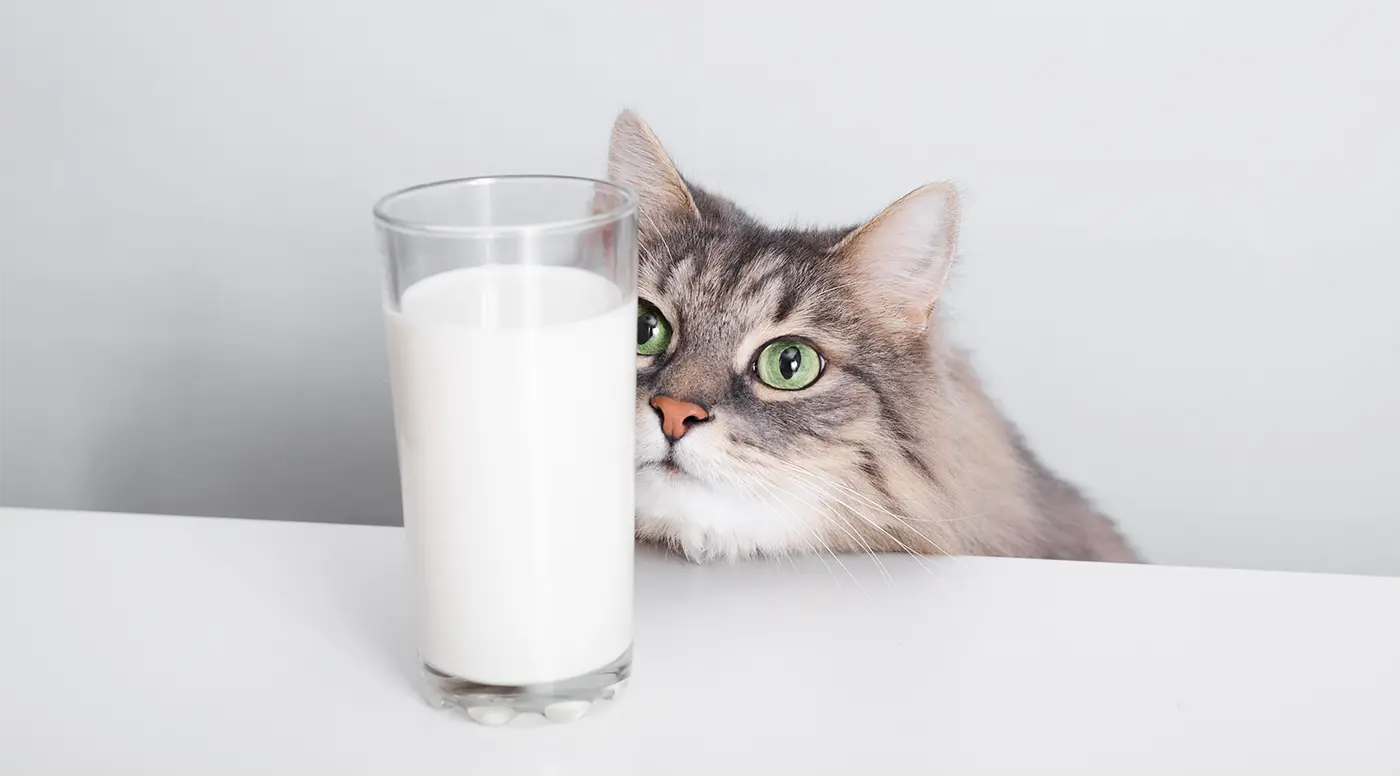
Is milk recommended for cats?
Although many people associate cats with milk, things are quite different when it comes to the health of our feline friends. In short, milk recommended for cats is a myth that needs debunking. Most adult cats are lactose intolerant, meaning they cannot digest lactose and may suffer from digestive issues such as diarrhea, bloating, and vomiting.
And yet, where does the myth that cats drink milk come from? Over time, the idea that cats love milk has been perpetuated by numerous cartoons and stories. In fact, it’s only normal for kittens to consume milk, and only milk from their mother cat. In exceptional cases, when the mother cat can no longer nurse the kittens, they can be fed special milk that can be purchased from veterinary pharmacies.
Table of Contents
Is milk recommended for cats?
No, milk is not recommended for cats. Milk essentially contains lactose, a sugar commonly found in milk composition. During nursing, kittens produce an enzyme called lactase, essential for breaking down lactose. As they mature, this enzyme is produced less and less, which can lead to lactose intolerance in adult cats. Consuming milk under these conditions, in an adult cat, can cause unpleasant symptoms such as diarrhea, vomiting, or bloating.

However, there are exceptions. Some cats can tolerate milk without issues, even if they are adults, but that doesn’t mean you can give them any type of milk.
What kind of milk is recommended for cats?
Cow’s milk, which is the most common type of milk offered to cats, is rich in fats and calories. This can lead to weight gain and health problems related to body weight, such as obesity and diabetes.
When considering milk recommended for cats, goat’s milk emerges as a viable option. Goat’s milk, often recommended as a healthier alternative to cow’s milk, is easier to digest. It boasts smaller casein molecules and fat globules, aiding digestion in the small intestine and fermenting partially in the large intestine. Additionally, its richer content of amino acids, vitamins, and minerals compared to cow’s milk positions it as a more nutritious choice. For cats, especially those with lactose intolerance, goat’s milk may offer advantages.
If your cat exhibits lactose intolerance but you still want to offer milk, there are lactose-free options or special milk for felines available for purchase at pet stores.
Related: Toxic Essential Oils for Cats (Top 5 doTERRA)
In conclusion, while milk is not recommended for most cats, except for goat’s milk, it should be administered in very small quantities and only after considering the individual cat’s tolerance and dietary needs.



